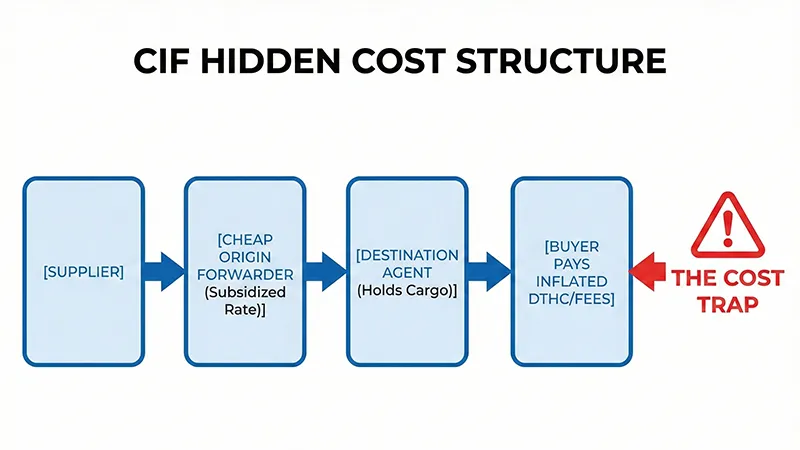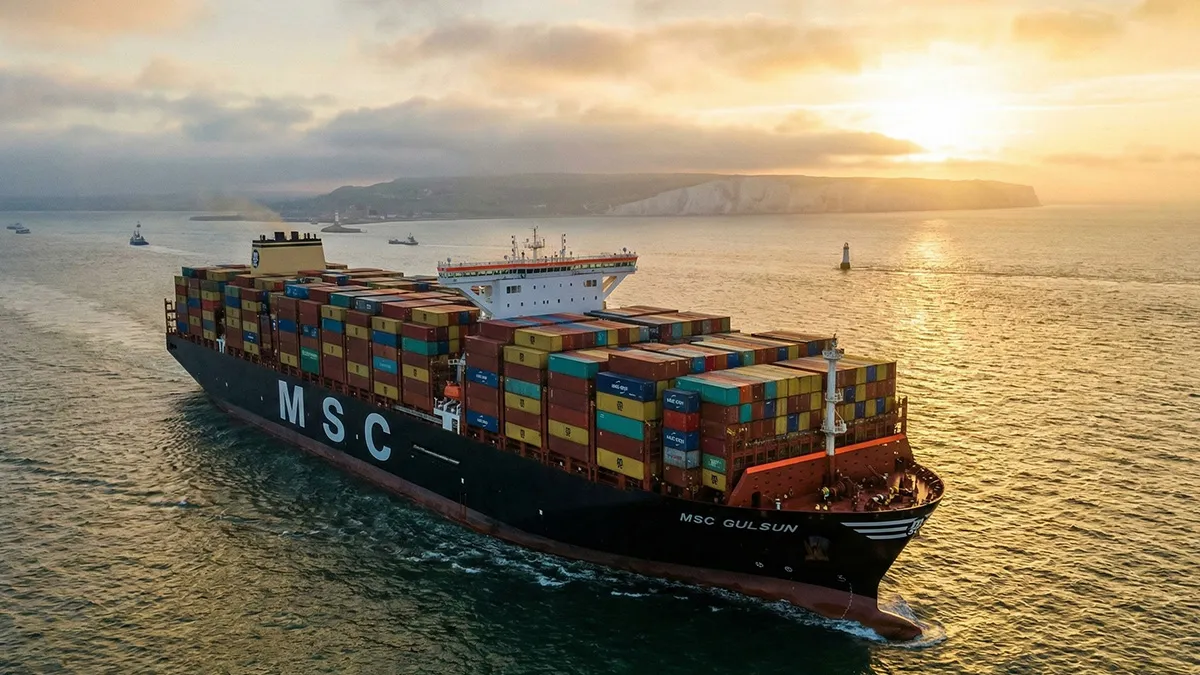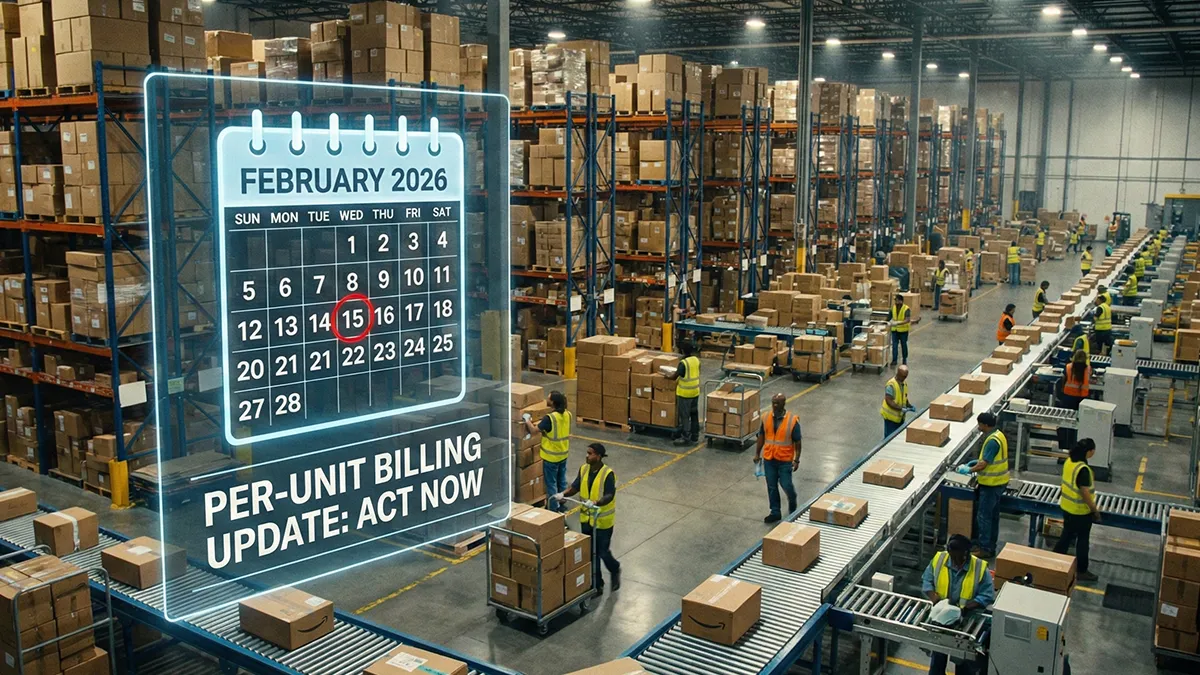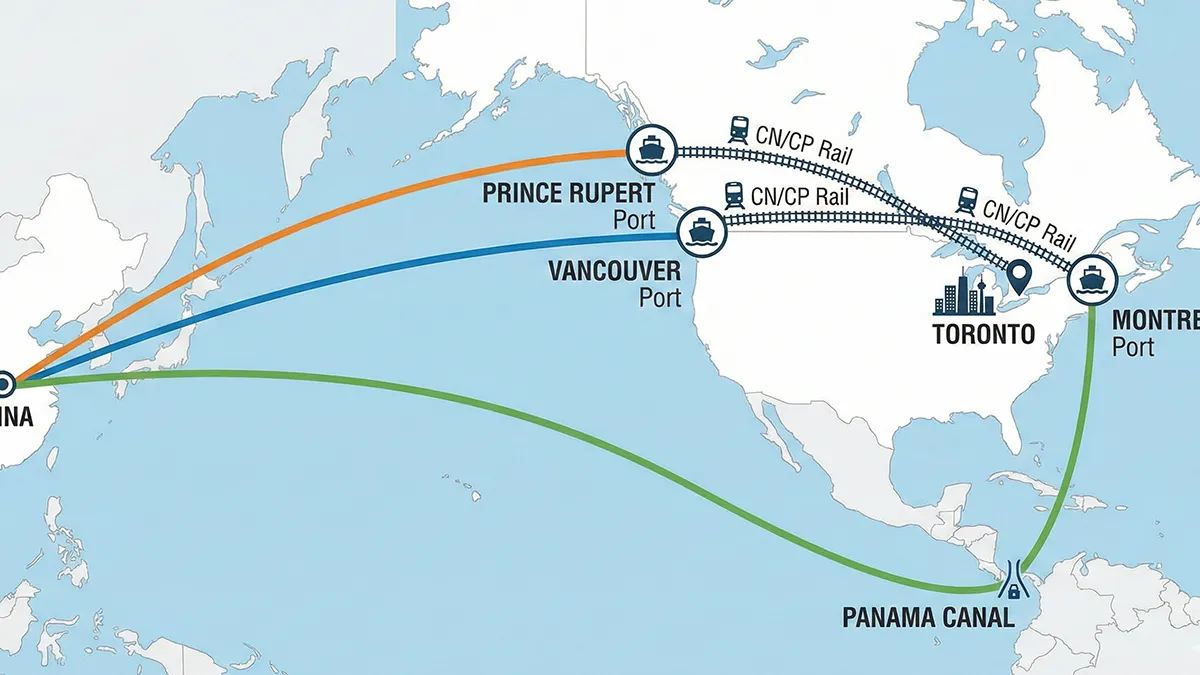FOB Shipping Explained (2026): Why Smart Importers Choose It
In international trade, a single acronym can determine whether you control your supply chain or whether you face unexpected costs at the destination.
If you ask a supplier in China for a quote, they often offer a CIF (Cost, Insurance, and Freight) price that looks surprisingly competitive. They promise to handle the ocean freight, insurance, and documentation until the goods reach a US port.
Proceed with caution.
In 2026, relying on CIF shipping is often a strategic error for scaling businesses. It exposes you to opaque destination fees and potential complications if your vessel is diverted due to the Red Sea Crisis.
While FOB (Free On Board) requires you to take control of the logistics, it is the standard for high-volume importers for a simple reason: Cost Control & Transparency.
At Zbao Logistics, we execute FOB shipments for hundreds of US importers, effectively turning their FOB contracts into seamless DDP (Door-to-Door) experiences. This guide is your 2026 playbook for mastering FOB shipping.
⚡ Quick Cheat Sheet: FOB vs. The Rest
Before diving into the strategy, you must understand the legal transfer of risk. Where does the supplier's job end, and yours begin?
| Incoterm (2020) | Supplier Responsibility Ends | Your Responsibility Starts | Risk Control | 2026 Recommendation |
| EXW (Ex Works) | Factory Floor | Factory Pickup 🚚 | Too High | Avoid. (Customs audit risk) |
| FOB (Free On Board) | On the Vessel 🚢 | Ocean Transit 🌊 | Optimal | Best Choice. (You control costs) |
| CIF (Cost, Ins, Freight) | US Port ⚓ | Import Customs 👮♂️ | Low | Caution. (Hidden fees likely) |
| DDP (Delivered Duty Paid) | Your Door 🏠 | Unloading 📦 | Zero | Varies. (Good for samples) |
Zbao Strategy:
The smartest importers buy on FOB terms (to lock in the product price without hidden freight markups) but hire a US-based forwarder like Zbao to execute as DDP. This gives you the low cost of FOB with the "hands-off" convenience of DDP.
1. What is FOB? (The Incoterms 2020 Definition)
FOB (Free On Board) is an international commercial term defined by the ICC (International Chamber of Commerce). It is used exclusively for Sea and Inland Waterway Transport.
The Seller's Role (China Side)
Under FOB, your Chinese supplier is responsible for:
-
Manufacturing and packaging the goods.
-
Transporting goods from the factory to the port of loading (e.g., Shanghai, Ningbo, Shenzhen).
-
Export Customs Clearance: This is critical. The supplier must handle all Chinese export licenses and filings.
-
Origin Terminal Handling Charges (OTHC): The cost to move the container from the truck onto the ship.
The Buyer's Role (US Side)
Once the goods are "on board" the vessel, risk transfers to you. You are responsible for:
-
Ocean Freight: You select the carrier and pay the shipping cost.
-
Insurance: You decide whether to insure the cargo (highly recommended).
-
Arrival Costs: Import customs, duties, and delivery to your warehouse.
Why this matters: Because you pay the freight, you own the freight contract. This gives you the power to choose the route, the carrier, and the price.
2. The Hidden Cost of CIF: Understanding Destination Fees

Why do suppliers push CIF so aggressively? Why would they offer to "cover the shipping" for a price that seems lower than the market rate?
Because the freight cost is often subsidized by destination charges.
The CIF model in China frequently operates on a rebate structure that can disadvantage the buyer at the destination port.
How the Cost Shifts to You
-
The Subsidized Rate: The supplier selects a freight forwarder who offers them a very low ocean rate.
-
The Trade-off: To recover the cost of the cheap ocean freight, the forwarder may charge higher fees at the destination.
-
The Invoice (DTHC): When goods arrive, the destination agent releases the cargo only after fees are paid. Under CIF, we often see Destination Terminal Handling Charges (DTHC) that are significantly higher than standard market rates.
The Reality:
Because the Bill of Lading is controlled by the supplier's agent, the buyer has limited leverage to negotiate these fees upon arrival.
The FOB Solution:
With FOB, you choose the forwarder (Zbao).
-
We quote you the Ocean Rate and the Destination Fees upfront.
-
We work for you, ensuring total landed cost transparency.
-
There are no unexpected "adjustment fees" at the destination.
3. 2026 Risk: Why FOB Offers Stronger General Average Protection
This is the most critical update for 2026.
The global shipping landscape has changed. Due to the Red Sea Crisis, vessels are frequently diverting around Africa or facing higher risks of maritime incidents. This increases the likelihood of "General Average" (GA).
What is General Average?
General Average is an ancient maritime law principle. If a ship is in distress (e.g., fire, grounding) and the captain must sacrifice cargo or incur extraordinary costs to save the vessel, ALL cargo owners on board must share the loss.
The Implication: You may be required to post a cash bond equal to 10% to 50% of your cargo's total value before you can pick up your container.
The CIF Limitation
If you buy CIF, the supplier is obligated to buy insurance. However, Incoterms only require them to buy Clause C (Minimum Cover).
-
Limited Coverage: Clause C is very basic. It covers sinking, but often has exclusions for theft or specific damages.
-
Claims Complexity: If GA happens, you often have to coordinate the bond with a foreign insurance company. Navigating legal documents across time zones can delay cargo release significantly.
The FOB Advantage (Zbao Protection)
When you ship FOB with Zbao, we can issue a US-based "All-Risk" (Clause A) policy in your name.
-
Coverage: Comprehensive protection including General Average.
-
Speed: If GA is declared, our US insurers post the guarantee bond immediately.
-
Result: Your cargo is released faster, minimizing supply chain disruption.
4. Legal Alert: Stop Using "FOB Destination"
We see this mistake in 40% of importer contracts.
"FOB Destination" is a term from the US Uniform Commercial Code (UCC). It applies to domestic trucking (e.g., moving goods from Texas to New York).
It does NOT exist in Incoterms 2020 for international ocean freight.
Why It's Risky
If your contract says "FOB Destination, Long Beach":
-
Ambiguity: If the ship sinks in the Pacific, the supplier will argue they fulfilled their "FOB" duty when the goods left China (Incoterms logic). You might argue they are responsible until arrival (UCC logic).
-
Liability: Without a clear definition, legal liability is unclear.
The Correct Fix
Always use specific Incoterms 2020 language pointing to the Port of Loading:
-
✅ Correct: "FOB Shanghai, Incoterms 2020"
-
✅ Correct: "FOB Ningbo, Incoterms 2020"
-
❌ Wrong: "FOB Destination" / "FOB Warehouse"
5. FOB vs. EXW: Why "Ex Works" Can Be a Headache
Some experienced buyers think: "I want total control, I'll choose EXW (Ex Works). I'll pick up the goods from the factory floor myself."
Be careful.
Under EXW, the Buyer is responsible for Export Customs Clearance in China.
The Compliance Hurdle
To clear Chinese customs, the exporter must have specific licenses.
-
If your factory is small, they might not have an export license.
-
If you buy EXW, you (the foreigner) are technically the exporter. You often cannot legally file the declaration without hiring a third-party agency.
-
This adds cost and potential compliance risk.
The Zbao Advice:
Stick to FOB. Make the supplier responsible for getting the goods through Chinese customs. It keeps the compliance burden where it belongs: on the manufacturer.
6. Zbao Playbook: How We Turn FOB into DDP
Many importers avoid FOB because they worry about the workload—managing bookings, ISF filings, and truckers.
That’s where Zbao Logistics comes in.
We offer a managed service that makes FOB as seamless as DDP.
The Zbao Workflow:
-
Contract: You sign an "FOB Shanghai" contract with your supplier.
-
Handoff: You send us the supplier's contact info. Your job is done.
-
Booking: We contact the factory, verify cargo readiness, and book the vessel.
-
Audit: We review the commercial invoice and HS Codes to prevent US Customs delays.
-
Transit: We handle the ocean freight and insurance.
-
Arrival: We file the ISF (10+2), clear US Customs, and pay the duties.
-
Delivery: We truck the container directly to your warehouse door.
You get the price transparency of FOB with the convenience of DDP.
<div style="text-align: center; margin-top: 30px; margin-bottom: 30px;">
<a href="https://www.google.com/search?q=/contact-us" style="background-color: #007bff; color: white; padding: 15px 30px; text-decoration: none; font-weight: bold; border-radius: 5px;">Get My FOB Shipping Quote</a>
</div>
FAQs (Frequently Asked Questions)
Q: Who pays for the Terminal Handling Charges (THC) under FOB?
A: It's split. The Supplier pays the Origin THC (OTHC) in China. You (The Buyer) pay the Destination THC (DTHC) in the USA. Under CIF, you pay DTHC too, but the cost may be higher or bundled opaquely.
Q: Can I use FOB for Air Freight?
A: Technically, Incoterms 2020 recommends using FCA (Free Carrier) for air freight instead of FOB. However, in practice, many businesses still use "FOB Airport." If you use Zbao, we treat "FOB Airport" as FCA to ensure legal compliance.
Q: Is DDP ever a good idea?
A: Yes. DDP is excellent for small sample shipments or urgent courier parcels. For compliant, tax-registered importers working with reputable forwarders, DDP can still be viable—but cost transparency is often lower than FOB-based execution.
Conclusion: Take Control of Your Supply Chain
In 2026, opting for "Free Shipping" often means sacrificing control over your timeline and final costs.
By switching to FOB, you gain:
-
Cost Transparency: Clear visibility on destination fees.
-
Risk Mitigation: Stronger protection against Red Sea risks via your own insurance.
-
Logistics Control: Your forwarder works for you, protecting your interests.
Ready to optimize your freight?
Send your supplier's packing list to Zbao today. We will provide a transparent "All-In" FOB-to-Door quote that puts you back in charge.


